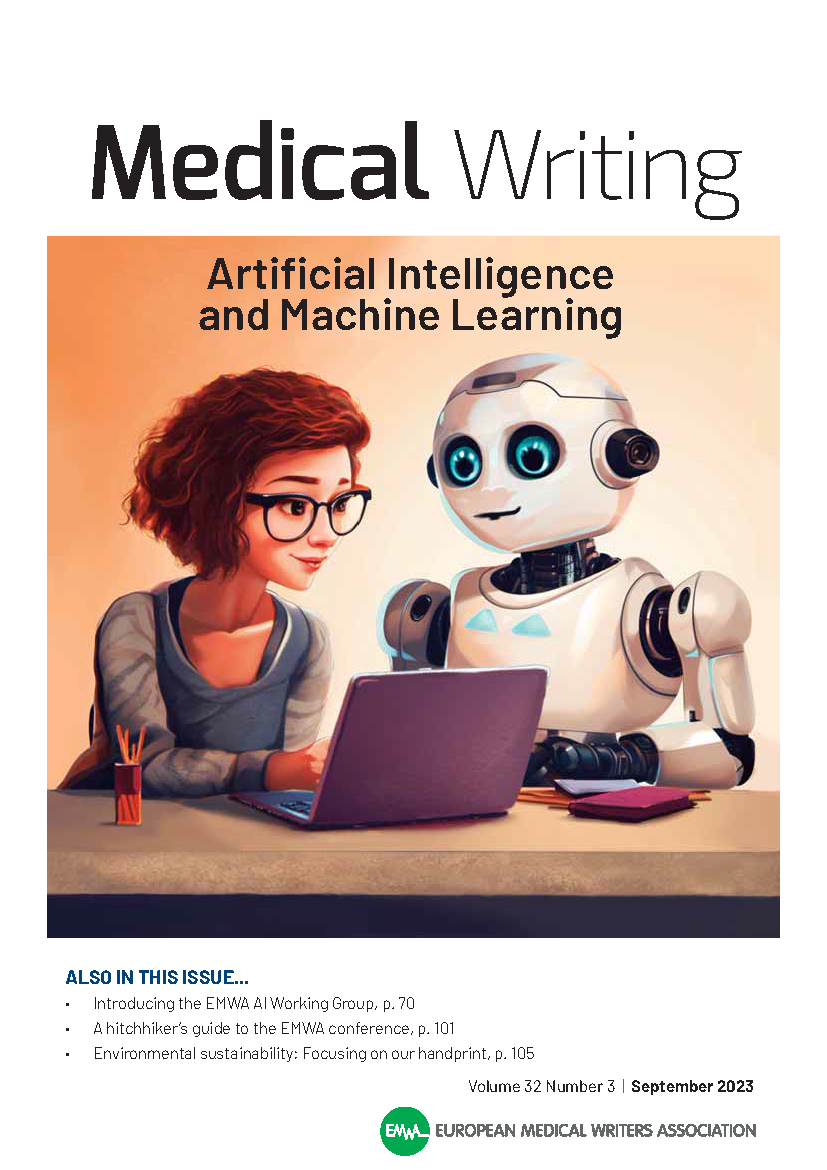
Volume 32, Issue 3 - Artificial Intelligence and Machine Learning
Digital Communication
Authors: Sofie Bergstrand, Catherine Heddle, Montse Sabaté, Marta Mas, Nicole Bezuidenhout
Abstract
Embracing artificial intelligence in medical writing: A new era of efficiency and collaboration
Authors: Sofie Bergstrand, Catherine Heddle, Montse Sabaté, Marta Mas
Section Editor: Nicole Bezuidenhout
Artificial intelligence (AI) tools have already shown great promise in improving the workflows of key tasks and processes within medical writing, freeing up time for us humans to focus on those unique abilities AI cannot replace…yet. At the top of the list are critical thinking, analytical skills, emotional intelligence, and creativity. More than that, we can harness those abilities to collaborate in multidisciplinary, international teams to create innovative and apt solutions – an integral part of our daily work as medical writers, particularly in joint tasks such as co-authoring. Indeed, digital collaboration tools for project teams are abundant (e.g., Google Suites, Asana, and Microsoft Teams) and have transformed the way we work, especially now that remote work has become the norm. Nevertheless, collaborative technology using AI appears to be lagging slightly behind in the new wave of AI tools suitable for medical writing. With the application of emerging technologies and AI on the rise, the potential for automating the collaborative medical writing experience looks promising.
Medical Writing. 2023;32(3):82–87. https://doi.org/10.56012/iamc1709
 Download the full article
Download the full article
Search
Articles
Links
Editoral Board
Editor-in-Chief
Co-Editors
Managing Editor
Victoria White
Deputy Managing Editor
Alicia Brooks Waltman
Associate Editors
Section Editors
AI/Automation
Biotechnology
Digital Communication
EMWA News
Freelancing
Gained in Translation
Getting Your Foot in the Door
Good Writing Practice
Pablo Izquierdo / Alison McIntosh
In the Bookstores
Publications
Medical Communications/Writing for Patients
Medical Devices
My First Medical Writing
News from the EMA
Pharmacovigilance
Regulatory Matters
Regulatory Public Disclosure
Louisa Ludwig-Begall / Sarah Kabani
The Crofter: Sustainable Communications
Veterinary Writing
Editors Emeritus
Layout Designer
Chris Monk
 Visit the EMWA website
Visit the EMWA website